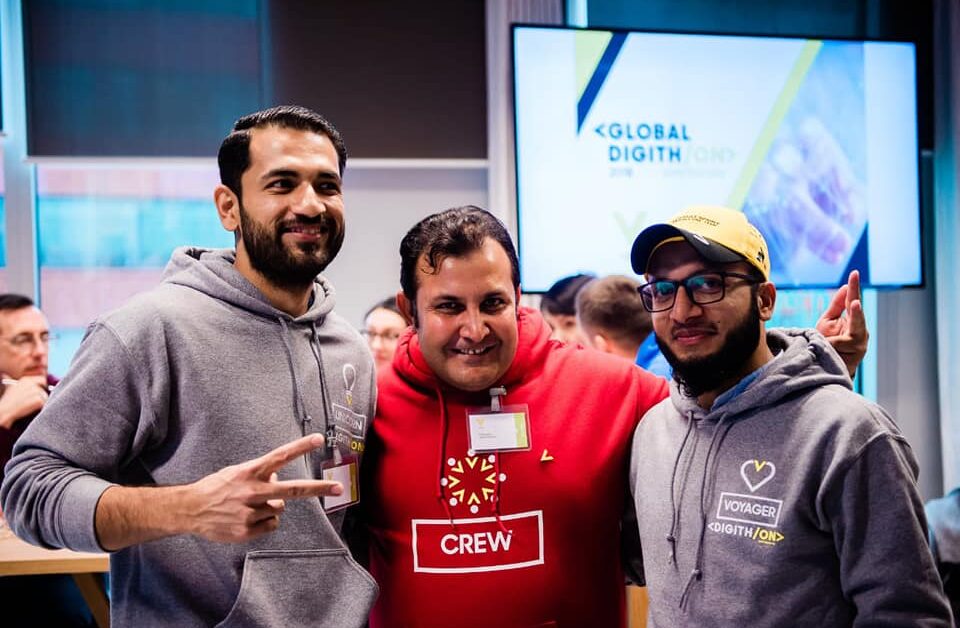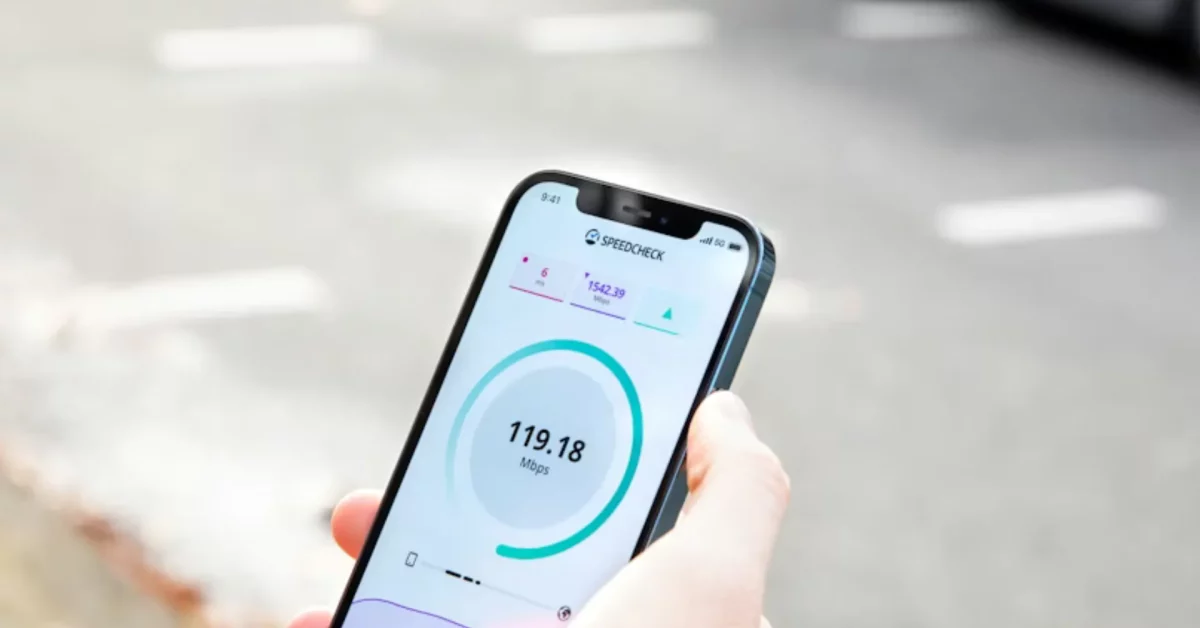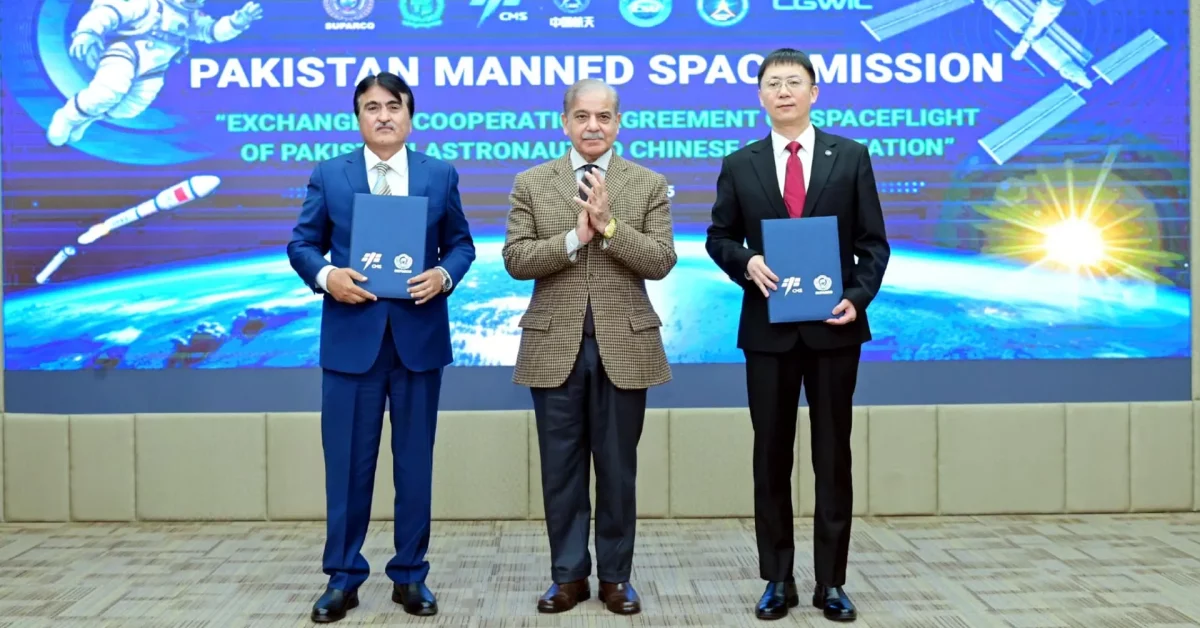
Pace your Digital Skills, or Lose the Race to the Future | Conversations@Jazz
March 26, 2019
A Dozen Global & Local Websites That’ll Make you More of a Digital Thinker
March 28, 2019Meet Jazz’s Global Digithon Winner! | Conversations@Jazz
On today’s episode, meet Fakhar Ejaz, Head of HRBP Technology, MFS-Digital and Corporate Divisions at Jazz. Ejaz led his team to victory in VEON’s 2018 Global Digithon held in Amsterdam, representing both his company and country. Five people from Pakistan participated in the international competition.
The Digithon is synonymous to a hackathon which is carried out all around the world. Each Digithon hosts a key challenge to address. This year’s challenge was to create and improve people’s engagement on a self-care platform. The self-care platform is such where the customer has all the information available at a one-touch point. All teams had 24 hours to elaborate their ideas and prepare prototypes. The teams, then, had to present their idea to the commission and its partners.
Ejaz and his team came up with a very unique idea of creating a user-friendly self-care platform focused on engagement, information, and payment. In order to successfully pursue the design-thinking approach, his team did some market research in their respective countries. They asked customers about the problems they face while using the platform. Most of them complained about the complexity of the self-care application. So, they adopted a 3-tier approach to address the issue while designing their prototype. Talking about the overall experience, Ejaz was mesmerized by the culture and the architecture of Amsterdam and it made him feel like home. Hear more about his experiences below.
Fakhar Ejaz: I think it’s very difficult to be honest, especially after getting this win because one of the things that when I actually applied for Digithon with my team which includes Haris, Ahmed, Omer and Sehrish, so our aim was very clear that we have to win from here and then we need to present our country and our company over there. So, winning for the company and the country was a proud moment.
Aisha Sarwari: No, it’s a big deal, Veon group has got a global footprint, everybody was competing from everywhere and to see Pakistan in the winning team was quite brilliant. Can you tell me for those people who don’t understand what Digithon is, what is Digithon and who conceived it and why is it such a big deal for the group?
Fakhar Ejaz: So Digithon basically is kind of a Hackathon which is happening in every OpCo of Veon, so what they started off last year when there was a Veon platform that was being launched, so the idea generation was basically on the improvement of the platform, how to get more engagement. So, then they realized that this should be an ongoing thing, so right now every OpCo is working on the self-care platform. So, what we did was there was a problem statement that was being given, specifically if I talk about Jazz, it was given in Jazz that we need to create engagement.
Aisha Sarwari: What was this time problem statement?
Fakhar Ejaz: It was basically to have an engagement over the current or any existing or new self-care platform, so that people get more engaged to it.
Aisha Sarwari: For those who don’t understand tech, what is the self-care platform?
Fakhar Ejaz: Self-care platform is very simple that if I am a user of an operator, so as a customer I need to have all the information, all the readily offers that are available for me, should be at one-point solution.
Aisha Sarwari: And then in the customer’s control?
Fakhar Ejaz: And in the customer control.
Aisha Sarwari: What was your idea? What did you do that was so unique that nobody thought of?
Fakhar Ejaz: So, you want to talk about the HQ one?
Aisha Sarwari: Yes.
Fakhar Ejaz: So basically, I will tell you about the problem statement, the problem statement was that what the group wanted was, I’ll give you a little bit background on the team selection before we jump on to that. So, every OpCo has a winning team, so they send the winning teams to Amsterdam all of the 11 teams over there and then they were all mixed together, so it was like we 5 people from Pakistan were all competing with each other as well, so it was all mixed teams over there.
So, the problem statement was more or less on the same lines what we had over here, it was that you want to have self-care as a one touch point solution for payment from information and engagement, so they wanted to work on the self-gear so that was the problem statement. Many people were working on different ideas, coming up with conversational chatbots, they were coming up with gamification modules, they were coming up with different altogether new interaction tools, not even a self-care or something new related to how to interact with Google just like that.
So, our idea was based on three things and before jumping on to the conclusion of the idea, we actually called, at least like I was from Pakistan so I called like 20 customers from a family from office who actually understand the pain points of the self-care.
Aisha Sarwari: So, you did your own research?
Fakhar Ejaz: Yes, so I did my research, there were two team members who were from Russia one is from Armenia and from Algeria; they call their people over there to get the insight about what exactly the challenges are and why we did this because we need to have a design thinking approach in this process. So, the first attempt of design thinking is that you need to empathize with the customer, so customer’s problems were that there is a lot of complexity, so the self-care app itself…
Aisha Sarwari: Usability was very difficult.
Fakhar Ejaz: Yeah, it was like very complex to use and everything so were three portions, one portion was that we were giving option to any customer to use an advanced interface or a basic interface, which has based on the need you can tweak or change and customize the interface based on the requirement. The second was that we were bringing our conversation chatbot which was actually interacting and supporting the customer itself and thirdly was the main thing that was different from the rest of the ideas were, that our plea was that we want to improve the lives of our customers, how we’re doing it.
So, the chatbot that we were actually trying to implement was that it was actually starting a conversation with the customer, trying to know about the customer in more detail which was not available and based on that the offer was being placed. For example, so if I’m the chatbot and you are the customer so suddenly you get a pop-up message asking, Hi Aisha, how are you, you would say of course I’m fine and this conversation is going to start.
So I’m going to ask you tell me about your hobbies or you say okay I like sports for example right, so I’ll say thank you and conversation closed, maybe after a couple of days you are traveling let’s say to Karachi and there is a sale in Karachi in Nike or in Adidas store, so the chatbot will send a message to you, so I got to another you in Karachi so there is 3 kilometers a shop which is offering 30% discount on sports goods, so that’s how I’m giving a personalized offer to you.
Aisha Sarwari: So, you’re using AI to integrate well-being and sort of customized information for every customer, how many people do you think this would reach to, so could this be for both smartphone and non-smartphone users, would it have a wide reach or you’re just targeting a particular segment?
Fakhar Ejaz: So, it’s basically for smartphone users very easily and this was again part of the research that we did with the customers, were that complexity. So people having smartphones don’t use the app itself, so we are giving them an option…
Aisha Sarwari: So, there’s a teaching gap between technology, so they have a very powerful machine but they don’t know how to use it.
Fakhar Ejaz: So, we need to give them pathway where a very simple app is actually helping their lives, the moment they realize it’s improving their lives, they’ll get that’s hooked to it, that’s how the engagement will begin.
Aisha Sarwari: And I’m assuming for regions like Pakistan where there’s a lot of Roman Urdu, because literacy is very low in our regions, so I’m assuming that you can convert these chatbots to do Roman Urdu or other languages because that’s when you actually reach masses.
Fakhar Ejaz: So the same question was asked from one of the final judges, that what are the key challenges you feel implementing this, so very simple answer and I would like to repeat myself what I said to them, that was that if you expect that it’s going to happen tomorrow, no, it’s not going to happen, so we need to take a step by step approach, English is easy we’re going to have partnerships with different vendors, who are actually working on different dialects and conversation chatbots and everything where the conversation is happening. So we start with English then meanwhile the companies will be having a database of Urdu and maybe Russian.
Aisha Sarwari: And the thing with AI is that it keeps teaching itself.
Fakhar Ejaz: Yes, it’s machine learning.
Aisha Sarwari: Okay, so you mentioned teams let me ask you the question that I think is in everybody’s mind but people are hesitant to ask, there was a specific team, a winning team selected and others weren’t so what makes a winning team in Jazz like if people are wondering how come I’m not part of the winning team, I’m innovative, I’m part of tech, so how come what was the composition?
Fakhar Ejaz: So, the composition is very simple, you need to bring the diversity perspective in it, when I say diversity it’s about different backgrounds, different type of skill set. So, in our team we had a GTM guy who’s an expert digital GTM in jazz, we had a guy who was a very good graphic designer he was also working on GTM, I was from HR having a technical background as well.
Aisha Sarwari: So, you mean diversity and skill but no diversity in background like male, female?
Fakhar Ejaz: That’s also there, so we had like four of our team members were male and one was female she was looking after the finance, and she actually worked on the financial of the project which actually helped us when in the local Digithon.
Aisha Sarwari: So, you won on the shoulders of a woman basically?
Fakhar Ejaz: You can say that.
Aisha Sarwari: Congratulations to her and you, I’m very pleased to hear about the Digithon win. Did people come up to you and say we’re really surprised that Pakistanis are innovative or did people expect Pakistanis to be innovative?
Fakhar Ejaz: So, I’ll tell you one thing, I had a conversation with one of our colleagues here, so we are South Asians like whether it’s Pakistani, Indians and Bangladesh so when you talk about especially the Veon group so we are only Pakistani and Bangladesh, so we have the confidence no matter what so it’s like literally it’s too much and then we have the energy to drive the things. So, when I interacted with the rest of the people over there, the one thing that I saw common between the Pakistani people and Bangladeshi people were that they were driving those teams, so three people from Pakistan, five people from Bangladesh most of them were leading their teams.
Aisha Sarwari: You have a background and an understanding of strategic human resources Fakhar, so can you tell me why like globally Pakistan is so behind when it comes to human capital and yet when you see in fields like technology and stuff there’s like a cream of the crop Pakistanis that are ahead of everybody globally, what is this sort of dichotomy?
Fakhar Ejaz: It’s very simple, we need to see the transition that has happened over the last 3-4 decades I would say. So, our progress has stopped like big time, we need to really focus on the education system, again we need to go to the grassroots, there are lots of issues over there.
Aisha Sarwari: What are those grassroots issues, education?
Fakhar Ejaz: We need to fix the grassroots and eventually drive it till the end, the point is still having not a proper educational system, still people are there and they are winning in the world.
Aisha Sarwari: That’s what I want to find out from you, what is getting those people to win, what is that winning formula that the same people with the same grassroots background thrive whereas the same people don’t, like what is it is it a mindset, is it technology, what is it?
Fakhar Ejaz: I strongly believe it’s all in the head, you need to be motivated, what exactly you want, you need to know what achievement will bring that to you, you need to be very sure what you want to do and those people no matter what their background is they are very clear in their head where they want to go.
Aisha Sarwari: So, they’re ambitious?
Fakhar Ejaz: Yes, they’re ambitious and they’re full of energy, they want to drive this.
Aisha Sarwari: There are a lot of ambitious people who just are not with it, so what is that winning combination if you would say combine this and this to win, what would it be?
Fakhar Ejaz: I think it’s again I’m going to talk about the Jazz values here, again five values all of them are quite spot-on, if I need to pick any two or three maybe Collaboration and to be very honest Entrepreneurship. The ownership of tasks needs to be there, if you own something by believing that it’s your own thing.
Aisha Sarwari: Don’t drop the ball
Fakhar Ejaz: And you will make sure that it goes to the miles you want and collaboration there. So what I’ve learned over there was one of the things that I was really keen to apply to local Digithon was that okay I need to represent my country and the company, and the second thing was I really wanted to work with the random people over there and it was a complete random selection of people, different backgrounds, very aggressive their approach as well and they were all winners from their countries, so that was a key learning for me.
Aisha Sarwari: So, who were maybe like the one or two people who were very memorable in your experience, like new friends because at the end of the day collaboration happens with people who have spirit.
Fakhar Ejaz: I’ll tell you a really funny story, so there was a guy named Bucket in our team he was from Algeria, so when we were pitching the idea so it seems like very easy for everyone, okay we were given 24 hours and idea was executed and it was being inclusively made and then it was executed, so it’s not like that. So right before 24 hours, after the 20th hour we thought okay this is going to go down the drain, we’re not doing this idea anymore.
Aisha Sarwari: Every creative point reaches a point where you’re like that.
Fakhar Ejaz: So, I said that this is not going to happen, so with this guy what happened was the he was the one who was negating everyone that is not going to happen, then at night at 12 pm what he did was that he placed his headphones and started working on the laptop, at 6:30 in the morning he came to us and said okay I have created the chatbot. So, the one who was actually negating the whole thing, he was actually a developer, very good skill set, very humble and he was able to actually create the chatbot.
Aisha Sarwari: That usually doesn’t happen; usually people who are naysayers don’t put in the work.
Fakhar Ejaz: Yes, he was one of the very key members.
Aisha Sarwari: Who else apart from Bucket?
Fakhar Ejaz: So, they were really mixed backgrounds.
Aisha Sarwari: Yes, one more, just so we can understand.
Fakhar Ejaz: I would like to talk about Rafael he was from Armenia, very strong-headed guy, he doesn’t believe in fabrication, his focus was that if we’re not able to present well that’s fine, if our product is good it’s going to fly, so he was that kind of techy guy.
Aisha Sarwari: Yes, he was value based.
Fakhar Ejaz: Yes, so he was totally a value-based guy, so convincing him that we really need to work on the fabrication so that we can actually showcase our work as well.
Aisha Sarwari: So, who was the communications guru, like who was the one really putting the marketing spin on things, you?
Fakhar Ejaz: So, it was a team effort, we were working together.
Aisha Sarwari: Yes, but there’s always one person saying, who focus on comms.
Fakhar Ejaz: So, the Digithon that happened over there, there were 11 mentors over there, so out of those 11 mentors one country was sending their mentor as well. So, from us it was Mian Talha from digital he was the selected mentor, he not only helped our group he helped everyone. So, he was actually really helping everyone in terms of how to align the pitch, how to make it more impactful, but overall, I was kind of leading the team.
Aisha Sarwari: Yes, I thought you would be one doing that.
Fakhar Ejaz: I was leading the team because after some time I realized that someone has to, so it has to be me then.
Aisha Sarwari: Did you do good things or bad things in Amsterdam?
Fakhar Ejaz: I think let it be the way it is, I had a really good time.
Aisha Sarwari: But Amsterdam has like amazing street culture, food all of that so what part of the culture did you like, what part didn’t you like?
Fakhar Ejaz: So, I really liked their modern culture, it’s quite off what I’m saying because normally people will say the old the way. But the way they have designed the building even from the outside and from the inside they’re pretty much different. The culture itself over there is really amazing and there’s a lot of diversity means a lot of people are coming in and going out, so honestly you feel home, you feel at home that no one is bothering about anything.
Aisha Sarwari: I think the one thing about those parts of the world is that there’s zero judgement I think, nobody ever looks to what the other person’s doing, everybody is just completely accepting not tolerant but accepting of everybody’s diverse viewpoints. You can be anywhere on the liberal and conservative frame and you can be just as accepted, I think that’s a good society, although did you notice something about the politics there, like in which way it’s shifting more right or left?
Fakhar Ejaz: No, honestly, I didn’t get any feeling of politics over there, people are really chill.
Aisha Sarwari: Well Fakhar congratulations again, we have an award for you that will be presented by one of our CxO’s later on, so just from Jazz to thank you for putting Pakistan on the map in terms of the global thing, but again congratulations and thank you so much for being part of Conversation@Jazz.






